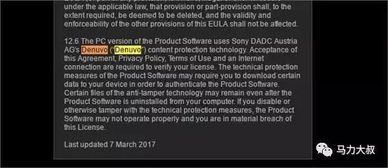Understanding Cryptocurrencies: A Comprehensive Guide

Cryptocurrencies have emerged as a revolutionary force in the financial world, challenging traditional banking systems and reshaping the way we perceive money. In this article, we will delve into the basics of cryptocurrencies, their workings, and their impact on the global economy. Let's embark on this journey to understand the fascinating world of cryptocurrencies.
What is Cryptocurrency?

Cryptocurrency, often referred to as crypto, is a digital or virtual form of currency that uses cryptography for security. Unlike traditional fiat currencies, cryptocurrencies are decentralized and operate on a technology called blockchain. This technology ensures transparency, security, and immutability of transactions.
How Does Cryptocurrency Work?

Cryptocurrencies operate through a decentralized network of computers, known as nodes. These nodes validate and record transactions in a public ledger called the blockchain. The blockchain is a chain of blocks, each containing a set of transactions. Once a block is added to the chain, it cannot be altered, making the system highly secure.
Transactions in cryptocurrencies are made using digital wallets. These wallets can be software-based (desktop, mobile, or web) or hardware-based. Users can send and receive cryptocurrencies by generating a unique address for each transaction. The process is secure and fast, often taking only a few minutes.
The Birth of Bitcoin

The first and most well-known cryptocurrency is Bitcoin. Created by an anonymous person or group of people using the pseudonym Satoshi Nakamoto in 2009, Bitcoin introduced the concept of a decentralized digital currency. Bitcoin's supply is capped at 21 million coins, making it a deflationary asset.
Types of Cryptocurrencies

There are thousands of cryptocurrencies in existence, each with its unique features and purposes. Some of the most popular cryptocurrencies include Ethereum, Ripple, Litecoin, and Bitcoin Cash. These cryptocurrencies can be categorized into various types, such as:
- Utility Tokens: These tokens are used to access a specific service or product within a decentralized application (DApp).

- Security Tokens: These tokens represent ownership or equity in a company or project.

- Stablecoins: These are cryptocurrencies designed to have a stable value, often pegged to a fiat currency or a basket of assets.

- Privacy Coins: These coins prioritize user privacy and offer advanced features to protect the sender, receiver, and transaction amount.

The Benefits of Cryptocurrencies

Cryptocurrencies offer several benefits over traditional fiat currencies:
- Decentralization: Cryptocurrencies operate independently of any central authority, reducing the risk of inflation and manipulation.

- Transparency: All transactions are recorded on the blockchain, making them transparent and verifiable.

- Security: Cryptographic algorithms ensure the security of transactions and protect users' privacy.

- Accessibility: Cryptocurrencies can be accessed by anyone with an internet connection, making financial services more inclusive.

The Challenges of Cryptocurrencies

Despite their benefits, cryptocurrencies face several challenges:
- Volatility: Cryptocurrency prices can be highly volatile, leading to significant gains or losses in a short period.

- Regulatory Uncertainty: The regulatory landscape for cryptocurrencies is still evolving, leading to uncertainty and potential legal issues.

- Scalability: Some cryptocurrencies struggle to handle a large number of transactions simultaneously, leading to network congestion and high transaction fees.

The Future of Cryptocurrencies

The future of cryptocurrencies is uncertain, but it is clear that they have the potential to disrupt traditional financial systems. As more people and businesses adopt cryptocurrencies, their value and utility are likely to increase. However, it is crucial to stay informed and cautious when investing in cryptocurrencies, as they come with inherent risks.
Conclusion

Cryptocurrencies have revolutionized the financial world, offering a decentralized, secure, and transparent alternative to traditional fiat currencies. As we continue to explore this fascinating world, it is essential to understand the benefits, challenges, and future potential of cryptocurrencies. By staying informed, we can make informed decisions and navigate the ever-evolving landscape of digital currencies.
Tags: Cryptocurrency, Bitcoin, Blockchain, DigitalCurrency, Decentralization, Investment, Technology

